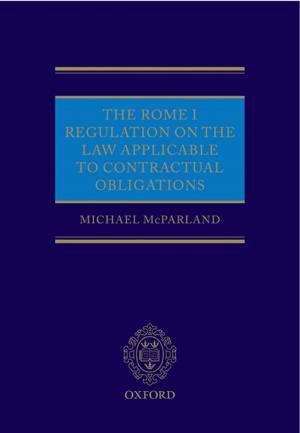Imperial Justice
Africans in Empire's Court
Nonfiction, Reference & Language, Law, Legal History, History| Author: | Bonny Ibhawoh | ISBN: | 9780191643187 |
| Publisher: | OUP Oxford | Publication: | October 3, 2013 |
| Imprint: | OUP Oxford | Language: | English |
| Author: | Bonny Ibhawoh |
| ISBN: | 9780191643187 |
| Publisher: | OUP Oxford |
| Publication: | October 3, 2013 |
| Imprint: | OUP Oxford |
| Language: | English |
Imperial Justice explores the imperial control of judicial governance and the adjudication of colonial difference in British Africa. Focusing on the Judicial Committee of the Privy Council and the colonial regional Appeal Courts for West Africa and East Africa, it examines how judicial discourses of native difference and imperial universalism in local disputes influenced practices of power in colonial settings and shaped an evolving jurisprudence of Empire. Arguing that the Imperial Appeal Courts were key sites where colonial legal modernity was fashioned, the book examines the tensions that permeated the colonial legal system such as the difficulty of upholding basic standards of British justice while at the same time allowing for local customary divergence which was thought essential to achieving that justice. The modernizing mission of British justice could only truly be achieved through recognition of local exceptionality and difference. Natives who appealed to the Courts of Empire were entitled to the same standards of justice as their 'civilized' colonists, yet the boundaries of racial, ethnic, and cultural difference somehow had to be recognized and maintained in the adjudicatory process. Meeting these divergent goals required flexibility in colonial law-making as well as in the administration of justice. In the paradox of integration and differentiation, imperial power and local cultures were not always in conflict but were sometimes complementary and mutually reinforcing. The book draws attention not only to the role of Imperial Appeal Courts in the colonies but also to the reciprocal place of colonized peoples in shaping the processes and outcomes of imperial justice. A valuable addition to British colonial literature, this book places Africa in a central role, and examines the role of the African colonies in the shaping of British Imperial jurisprudence.
Imperial Justice explores the imperial control of judicial governance and the adjudication of colonial difference in British Africa. Focusing on the Judicial Committee of the Privy Council and the colonial regional Appeal Courts for West Africa and East Africa, it examines how judicial discourses of native difference and imperial universalism in local disputes influenced practices of power in colonial settings and shaped an evolving jurisprudence of Empire. Arguing that the Imperial Appeal Courts were key sites where colonial legal modernity was fashioned, the book examines the tensions that permeated the colonial legal system such as the difficulty of upholding basic standards of British justice while at the same time allowing for local customary divergence which was thought essential to achieving that justice. The modernizing mission of British justice could only truly be achieved through recognition of local exceptionality and difference. Natives who appealed to the Courts of Empire were entitled to the same standards of justice as their 'civilized' colonists, yet the boundaries of racial, ethnic, and cultural difference somehow had to be recognized and maintained in the adjudicatory process. Meeting these divergent goals required flexibility in colonial law-making as well as in the administration of justice. In the paradox of integration and differentiation, imperial power and local cultures were not always in conflict but were sometimes complementary and mutually reinforcing. The book draws attention not only to the role of Imperial Appeal Courts in the colonies but also to the reciprocal place of colonized peoples in shaping the processes and outcomes of imperial justice. A valuable addition to British colonial literature, this book places Africa in a central role, and examines the role of the African colonies in the shaping of British Imperial jurisprudence.















